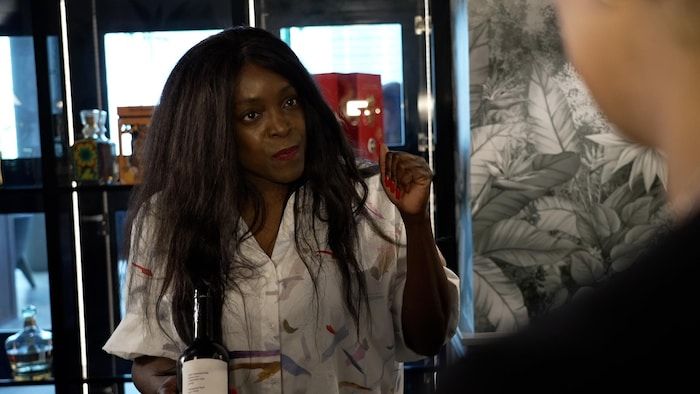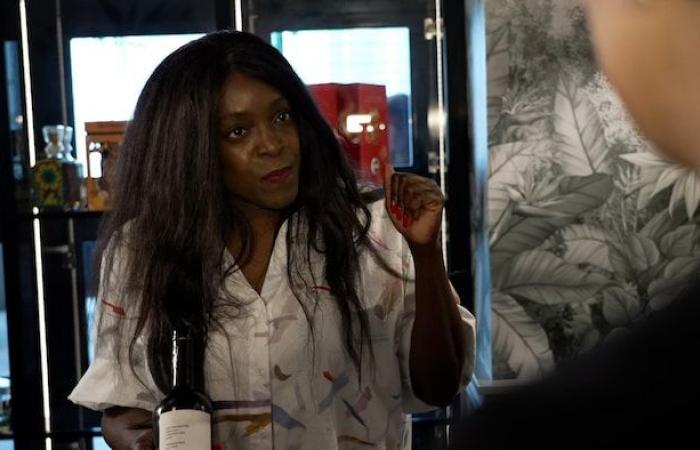It’s a somewhat special classroom: we talk about grape varieties and terroir, nose and finish. Welcome to the Sommelier Factory, a school for sommeliers located in Toronto.
This morning there are five of them listening religiously Bruce Wallnersommelier and founder of the school, describe the difference between Sancerre and Brouilly, supporting map of France and uncorked bottles in evidence.
For 18 weeks, these aspiring sommeliers familiarize themselves with the subtleties of wine. The course prepares them for the Court of Master Sommeliers. This globally recognized certification is the Holy Grail for anyone who wants to practice the profession in large establishments.
Lee Stein is one of the students of Mr. Wallner. After experience in a seafood restaurant and then in a wine tasting club, she decided to start her own business. She has a project centered around food and wine pairings, in pop-up restaurants, combining her budding love for oenology.
Open in full screen mode
Lee Stein wanted to deepen her knowledge of sommelier in order to better connect with the oenophiles she meets.
Photo: Radio-Canada / Mouaad El Yaakabi
I want to learn as much as possible because I really love the stories surrounding the world of wine.
However, if Mrs. Stein wants her project to be credible, she must certify her expertise with a diploma. Because the entry ticket to becoming a sommelier requires it.
Arms race for the stars
With more than 60% of national wine production, Ontario is the leading wine-producing province in the country. In addition, its reputation is well established internationally for ice wines. The sector is growing and offers new opportunities, such as for sommeliers.
% of our members in the last three years”,”text”:”We have seen an increase of over 30% in our members in the last three years”}}”>We have seen an increase of over 30% in our membership over the last three years
congratulates himself James Pedenpresident of the Canadian Association of Professional Sommeliers in Ontario.
In two decades in the sector, he has seen the evolution of the profession accompany the growth of the gastronomic scene of the Queen City since the arrival of the first Michelin stars in 2022. What followed an arms race
among the suitors who raised, in the opinion of M. Pedenthe general level, not only wine lists, but quality of service
.
Open in full screen mode
Before diving into the refined world of Toronto cellars, James Peden cut his teeth behind a bar for 11 years.
Photo: Radio-Canada
A trend confirmed by Nabilah Rawji, who gives Sommelier courses Factory. The school had to increase the number of courses to meet growing demand
she says.
Ms. Rawji also noticed a paradigm shift: Employers are becoming more involved in the training of their staff. They cover the training costs, which I think is a testament to the current state of our restaurant community in Toronto
.
Many certifications have done something that I think has gone unnoticed: they quantified a soft skill, namely how to provide elite customer service and hospitality.
Make room for different profiles
The profiles have also changed. years ago, this is completely unprecedented”,”text”:”Some have never worked in restaurants, which was unthinkable only ten years ago, this is completely unprecedented”}}”>Some have never worked in restaurants, which was unthinkable just ten years ago, it’s completely unprecedented
note M. Peden.
It was precisely ten years ago that Ms. Rawji abandoned her career in ecology to devote herself to her passion for wine. She took the same courses that she offers today with Bruce Wallnerthe founder of the Sommelier Factory.
The passion is still intact, and the trainer plans: I’m very excited for the next ten years. I think there is so much to explore and minds are a little more open
.

Open in full screen mode
Nabilah Rawji, initially specialized in ecology and animal behavior, discovered a passion for wine 10 years ago, encouraging her to deepen her knowledge in a more formal way.
Photo: Radio-Canada / Mouaad El Yaakabi
Long considered elitist, the profession seeks to break the glass ceiling and plays the diversity card.
Beverly Crandon and Ms. Rawji launched Vinequity, which offers scholarships to aspiring sommeliers from diverse backgrounds to facilitate their access to the profession.
His partner in the adventure is also an example of an atypical journey. After an early career in sales and marketing, Ms. Crandon retrained to become a certified sommelier and founded the gastronomy festival Spring Into Spice. We have members and we support people across Canada, from Nova Scotia to British Columbia, not just Ontario
she explains.

Open in full screen mode
Beverly Crandon launched Vinequity to pave the way for more sommeliers of color.
Photo: Radio-Canada / Mouaad EL YAAKABI
During her career, the sommelier of Guyanese origin sometimes felt ridiculous, embarrassed
in an environment where his cultural references were not valued. When tasting wines, she says, I was talking about something from my childhood, but no one had any concept of Caribbean culture
.
They told me I couldn’t say that.
Because she don’t want anyone to feel like that
she created a space where people from diverse backgrounds can taste wine and learn about wine in a place where they won’t feel embarrassed or made to feel unworthy
.
Even if it means perhaps encouraging vocations.









